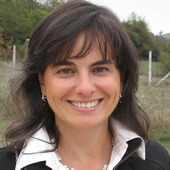 by Antonella Ferrucci
by Antonella Ferrucci
from "Economia di Comunione - una cultura nuova" n.43 - Editorial insert of Città Nuova no. 7 - 2016 July 2016
There are 10 theses submitted to this archive over the last year: 4 among these were submitted after a three-year higher education training (bachelor's) or for baccalaureate (high school-leaving) exams, 4 are master's and 2 doctoral theses, discussed at different universities in Italy, South Korea, Mexico, Brazil and the Democratic Republic of Congo.
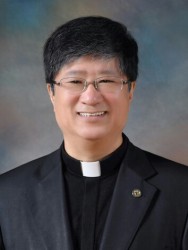 Park, Young-bong
Park, Young-bong
A Study of a Social Teaching Plan as an Alternative to Economic Neoliberalism with Focus on the Economy of Communion
PhD in the Social Teaching of the Church
Suwon Catholic University by Gyeonggi-do, South Korea 7 September 2009, language: Korean, Advisor: Lee, Seong-hyo
Why is it that the gap between the rich and the poor seems to increase more and more in the world? What is generating this trend? The answer is in the prevalence of the neoliberal economy and the maximization of profits at any cost that results from it. Founded on the culture of giving, the Economy of Communion is about helping those in need out of poverty and can be an alternative to neo-liberalism that is based on capital and competition. Despite the difficulties in spreading the "Policy of communion" in the Korean reality, it has been found that in the companies operated with these standards, results were not slow in coming.
 Alessandra Poloni
Alessandra Poloni
CSV and EoC: models for a sustainable development
Specialist Degree in International Business
University of Bergamo, 30 October 2012, Language: Italian, Advisor: Gianpaolo Baronchelli
The models of "Creating Shared Value" and "Economy of Communion" solve social issues by inviting for collaboration and the enhancement of the community context. It is a very effective approach in the emerging realities where the proactive action of the western enterprise is employed for the development of the country in which it wants to settle, respecting its culture and values. The thesis concludes with the case of a company that intends to enter the Indian market: considering the values and also the barriers this entry, it outlines an approach mode as shown in CSV and EoC.
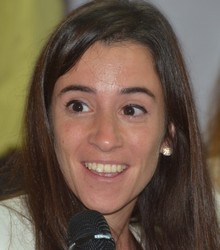 Florencia Locascio
Florencia Locascio
Ideal-Motivated Businesses: the Challenge of Getting Employees Involved
First Level Bachelor's Degree in Social Communication
Universidad Nacional De Rosario, Argentina, 8 December 2012, Language: Spanish, Advisor: Silvana Comba
The thesis is a case study of the EoC company Dimaco SA from Paranà (Argentina) and it reflects on the ways to promote the involvement of workers in the cultural objectives of the company, so that the entire organization is moving in the same direction. The communication process is analysed and the most effective practices for achieving the participation of the workers are identified. Finally, after recognizing the importance of a communication strategy, a communication plan for Dimaco S.A is developed .
 Kang, Young-sun
Kang, Young-sun
Economy of Communion: Theory and Practice
Master in Business Administration
Seoul National University of Science and Technology, 28 March 2013, language: Korean, Advisor: Kim, Sam-soo
The EoC is capable of surpassing the principle of competition in the capitalist market economy and achieving brotherhood in economics. Although practised by only a few companies and with a short history, the EoC shows that it is possible to restore individual relationships and trust in the market, too. The real value of the EoC is in placing people at the centre in all production processes. The EoC promotes brotherhood through social and economic activities, and practises the culture of giving in a society wounded by marginalization and suspicion.
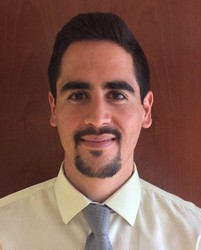 Josué Aduna Castillo
Josué Aduna Castillo
Happiness in Mexico: an Application of the System of Equations with No Apparent Correlation
Bachelor's Degree in Applied Statistics in the Insurance and Finances Sector
Instituto Tecnológico Autónomo de México (ITAM), 25 June 2014, Language: Spanish, Advisor:: Juan José Fernández Durán
The thesis, in search of sustainable development and a guideline for public policies, wonders what factors determine the happiness of a Mexican person. Among the possible variables the EoC's culture of giving is also taken into account. After an analysis based on the latest studies for the measurement of happiness, the thesis shows that, even if the environment contributes to the level of happiness, inner growth and personal characteristics are the determining factors of happiness, confirming a fully human vision of underlying happiness attributed to the EoC.
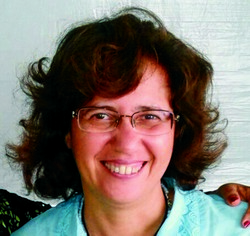 Iracema Andréa Arantes da Cruz
Iracema Andréa Arantes da Cruz
Economy of Communion: a Niche Experience or Potential of Diffusion? An Analysis from the Perspective of Agape.
Doctoral Degree in Religious Studies
Pontifical University of Sao Paulo (Brazil) , 1 August 2014, Language: Portuguese, Advisor: Enio da Costa Brito
The thesis which takes Niklas Luhmann's social systems theory as theoretical reference shows that if the unconditional love of agape is introduced into the economic system through the EoC as a principle capable of directing the actions of individuals in society, it causes a break in the current economic logic, giving rise to what is called "rationality of communion".
 Dayana Piccoli
Dayana Piccoli
The Project of the Economy of Communion: The Projects and Experiences of the Lionello Bonfanti Business Park, Bertola Ltd. and Ornella Seca Agency
Master's Degree in Marketing and Corporate Communication
Carlo Bo University of Urbino, 9 December 2014, Language: Italian, Advisor:: Mara Del Baldo
The word of mouth about good deeds and reciprocity of the EoC activates dynamics of appetite for the common good. Encouraged to achieve personal growth at work, people are satisfied and involved in their profession with concrete benefit for the company, triggering processes of mutual aid. For the project to grow, however, the developed of measurement tools of relational dynamics is necessary, just as an adequate and flexible interdisciplinary terminology and a greater publicity and dissemination of this new way of doing economics.
 Giuliana Giglio
Giuliana Giglio
Mission, Governance and Competitive Advantage of a Business with a Social Orientation: the Project of the Economy of Communion
Undergraduate degree in Economy and Company Management
University of Catania, 2 March 2015, Language: Italian, Advisor: Rosario Faraci
The thesis analyses a socially-oriented business strategy, linked to the experience of the EoC's Lionello Bonfanti Business Park which sees the company as a fundamental tool for a more civil and ethical society. Mission, governance and competitive advantage are based on the centrality of man and the relationships inside and outside the company, the strategic importance of the welfare of the client who is the user of the product, on respecting the environment and paying attention to those who are in difficulty.
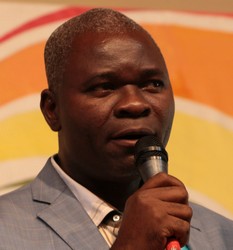 Corneille Kibimbwa
Corneille Kibimbwa
An Analysis of Client Satisfaction in the Moyi Mwa Ntongo EoC Centre for Medical Analysis (CMMMN) in Kinshasa
Master in Company Management
Kinshasa Business School (Democratic Republic of the Congo), 6 June 2015, Language: French, Advisor: Annie Cornet
The Moyi Mwa Ntongo Medical Centre is an EoC activity which saw a very significant growth in clients and revenue between 2010 and 2013. The thesis analyses the satisfaction of the customers regarding the management of the centre which is based on the EoC values: empirical research has shown that the EoC practices implemented attract customers to CMMMN, in a greater overall measure than to other competitor hospitals, especially because of the quality the staff and the pleasantness of the rooms.
 Giuliana Ferretti
Giuliana Ferretti
Organisations, CSR and Social Development. The Experience of the EoC Companies
Undergraduate degree in Economics: Banks, Businesses and Markets
University of Macerata, 20 October 2015, Language: Italian, Advisor: Federico Niccolini
The pursuit of profit can be combined with the resolution of social problems, as demonstrated by the analysis of the companies involved in the EoC project that are an example of how organizations can create wealth not only for themselves but also for society. However, a cultural change is needed, not only as regards the role of business but also its own identity. The EoC companies show that the way to contribute to social, economic and environmental welfare is actually viable.







